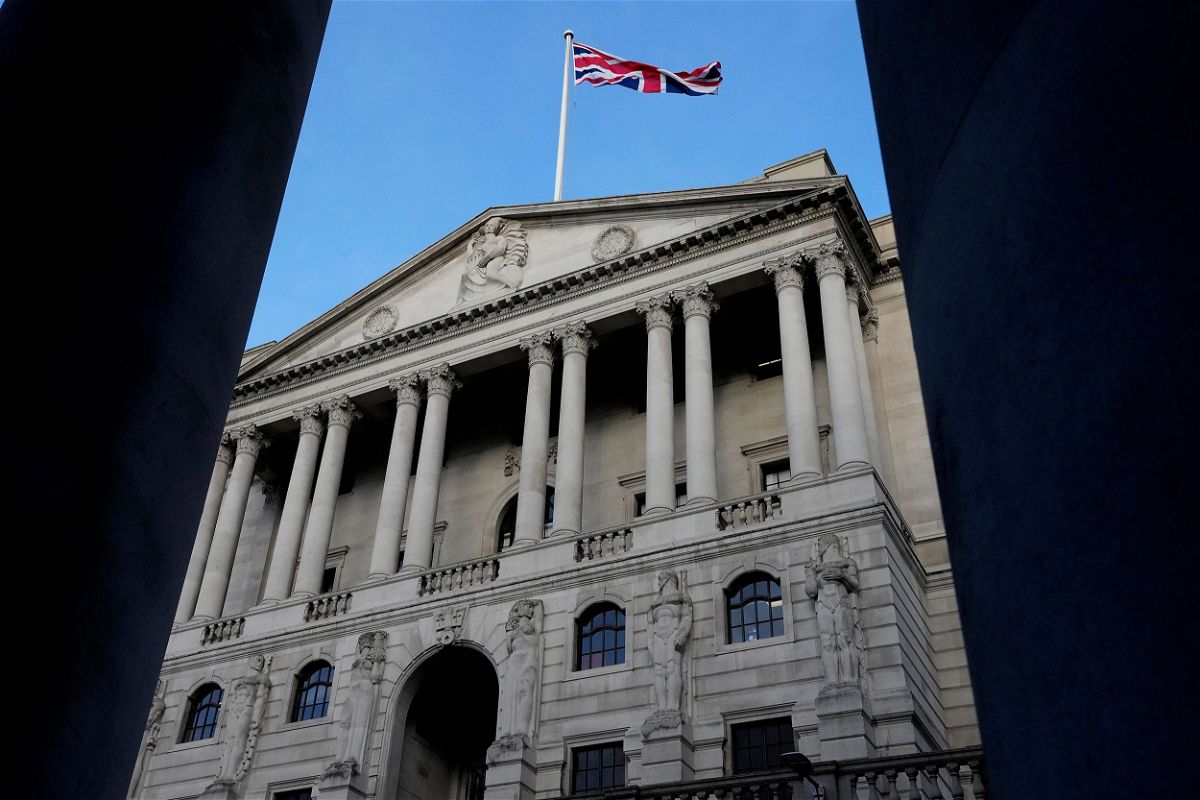ECB and Bank of England fight inflation with sharp interest rate hikes

The Bank of England raised interest rates by half a percentage point
By Olesya Dmitracova, CNN
Europe’s two largest central banks raised interest rates sharply on Thursday, opting for bigger increases than the US Federal Reserve as inflation in the region remains near historically high levels.
The European Central Bank (ECB) and the Bank of England lifted rates by another half a percentage point. Benchmark interest rates for both are at their highest levels since 2008.
Across the Atlantic, the Federal Reserve eased up on rate hikes on Wednesday, delivering just a quarter-point increase as it judged that it was making progress in its battle against inflation.
The ECB said it expected to raise interest rates further and “intended” to hike them by another half a percentage point in March. Although inflation in the 20 countries that use the euro slowed in January, at 8.5% it remains far above the bank’s 2% target.
Speaking to reporters after the announcement, ECB President Christine Lagarde noted recent steep falls in energy prices, but said the fight to tame inflation had further to go.
“Headline inflation has gone down and more so than we had expected and that many had expected,” she said. “But underlying inflation pressure is there, alive and kicking, which is why … I say we have more ground to cover and we are not done.”
UK inflation has also eased, coming in at 10.5% in December, but remains near a 41-year high.
The Bank of England has a particularly tough job on its hands: prices are rising rapidly while at the same time the United Kingdom faces a risk of recession, and rate hikes act to dampen both inflation and economic growth. On Tuesday, the International Monetary Fund forecast that the United Kingdom would be the only major economy to contract this year.
The Bank of England said UK inflation was likely to fall sharply over the rest of the year, largely as past increases in energy and other prices fell out of the calculation. But it signaled significant uncertainty over its forecast.
“The labor market remains tight and domestic price and wage pressures have been stronger than expected, suggesting risks of greater persistence in underlying inflation,” the bank said in a statement.
In addition, wholesale energy prices might boost UK inflation more than expected, it added.
On the broader UK economy, the Bank of England turned more optimistic, forecasting a 0.5% decline in output this year compared with the 1.5% contraction predicted in November. That’s broadly in line with the latest IMF forecast.
The ECB also released some details on the unwinding of its asset purchase program, reiterating that its holdings would decline by €15 billion ($16.5 billion) per month on average from March and until the end of June.
The-CNN-Wire
™ & © 2023 Cable News Network, Inc., a Warner Bros. Discovery Company. All rights reserved.

